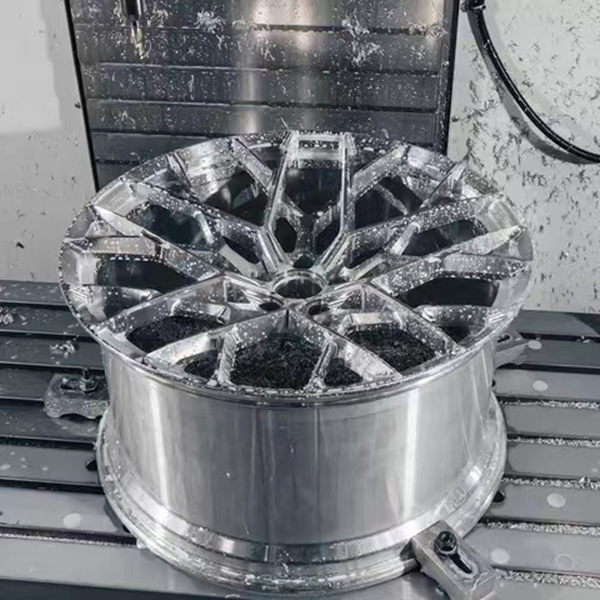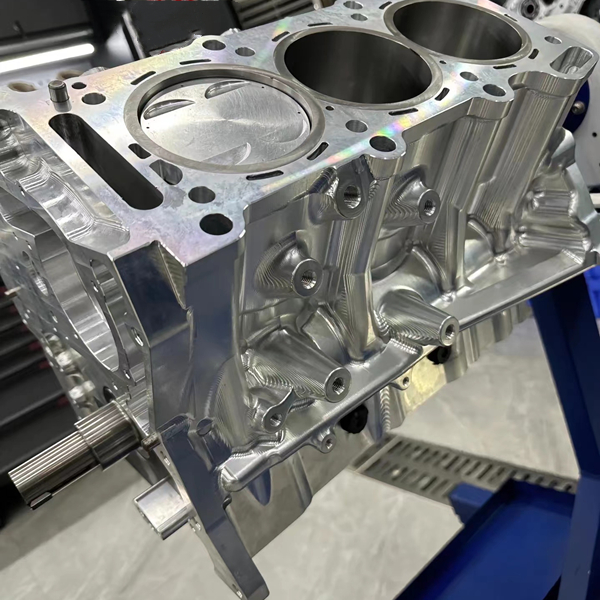In the automotive world of innovation, precision is paramount. Whether promoting electric vehicles (EVs) or developing new, efficient combustion engines necessitates accurate, repeatable, reliable manufacturing measures at unprecedented levels. Especially as CNC automotive machining continues to be a key part of auto parts manufacturing.
Regardless of your task, whether you are tasked with production of the next wave of EVs or managing the effective operation of efficient combustion engines, CNC machining can provide performance, quality, and consistency for to competing in the market.

1. What is CNC in Automotive?
CNC stands for Computer Numerical Control; an automated process of manufacturing, running off pre-programmed software to monitor the movements of factory tools and machinery. In automotive (auto) machining, CNC technology allows metal or plastic parts to be accurately cut, milled, drilled, or grinded to precise specifications.
This includes:
Tight tolerances within microns
High levels of repeatability for mass production
Rapid prototyping and customized modifications
More freedom of design to produce complex parts
At the center of the industry, CNC machining is a bridge between designs (engineering) and production while reducing errors and improving time to market.
2. What is Automotive Precision Machining?
Automotive precision machining is the precision production of complex, high-tolerance components needed in vehicles by CNC machines. Presence under conditions of heat, vibration, or other stress is taken for granted, and there is no room for late errors.Key aspects of precision machining for the automotive industry include:
Tolerances of ±0.001 mm
Durable materials such as aluminum, titanium, steel, and specialty alloys
3-, 4-, or 5-axis machining for complex geometries
Following industry specifications (ISO, TS16949, etc.)
In precision operations, tolerances are incredibly important. Nonconformance (even a single malfunction) in safety-critical components like braking systems, engine blocks, or even fuel injection components, could result in a failure of the entire system within the vehicle.
3. What Car Parts Are CNC Machined?
There are many car parts that are CNC machined as CNC machining is usually the preferred process for components requiring high accuracy or complex shaped objects. Some types of coffee parts that are usually CNC machined are:
Engine Blocks & Cylinder Heads
CNC machines are used to accurately align bores and maintain flat surfaces for ultimate combustion efficiency.
Transmission Components
Gears, shafts, and housings all require exceptionally tight tolerances to operate smoothly under load.
Suspension & Steering Components
To guarantee strength and performance consistency, knuckles, control arms, and brackets are machined components.
Brake System Parts
Brake rotors, calipers, and ABS housings must be CNC machined for safety and thermal efficiency purposes.
Drivetrain Components
CNC machining is utilized for parts such as axles, differentials, and couplings to account for torque and vibration issues.
Interior & Exterior Custom Components
Think dashboard bezel or trim brackets. Some companies are crafting CNC machine parts in their accessories for aftermarket products.

4. What Is Auto Parts Manufacturing?
All vehicle parts utilized on any vehicle must be brought to life through an industrial process called auto parts manufacturing. Even though stamping, forging, molding, and casting are all types of auto parts manufacturing, CNC machining plays an integral role in producing precision parts that are:
Custom specified
Lightweight (yet still strong), or
Complex for other manufacturing processes to develop.
Traditional manufacturing methods in conjunction with the new approaches of CNC machining are utilized to build today's vehicles for the new design and performance requirements. These include but are not limited to:
Electric vehicle (EV) platforms;
Lightweight material substitutions (i.e., aluminum framework replacing steel);
High-performance attributes; and/or
Integration of autonomous systems.
5. Why Falcon CNC Is the Right Partner of Automotive Manufacturing
Falcon CNC Machining blends technology with our many years of real productivity experience to provide:
Tight tolerances provide fast production on behalf of the automotive industry.
5-axis complexity of automotive components.
Full autonomy from prototype to production.
Material traceability and quality.
Providing support for runs that are high mix, low volume, and high volume runs.
Whether you're a Tier 1 supplier, OEM, or a unique innovator looking to build the future of mobility, Falcon CNC provides the reliability and performance you deserve.
6. Future Trends in CNC Automotive Machining
Modern manufacturing is evolving in line with modern trends of manufacturing, including:
Innovating vehicle part optimization for EV platforms;
Lightweighting with aluminum and titanium CNC machining;
Smart manufacturing, such as IoT production;
Rapid prototyping for EV startups; and/or
Machining sustainability practices.
With the ability to build more than today's industry, Falcon CNC is ahead of the trends and will make certain that your automotive parts are built for today, with consideration for tomorrow.
Let's Build the Future of Automotive-Together!
Whether it is production-ready engine components, or construction of complexity of parts for EV components, Falcon CNC Machining está listo para proporcionar. Póngase en contacto con nosotros hoy para discutir cómo nuestros servicios de mecanizado automático de precisión pueden ayudar a su empresa en el futuro, más rápido, más fuerte y más inteligente.